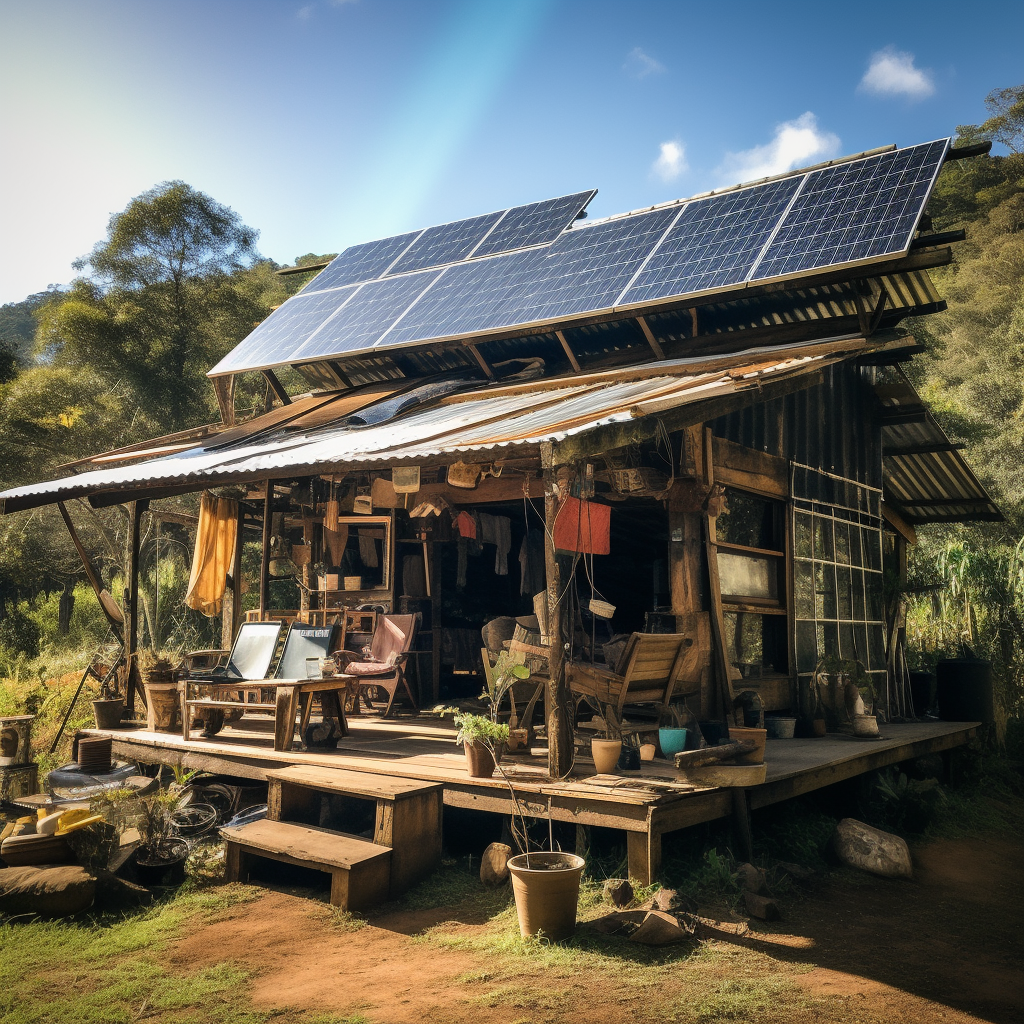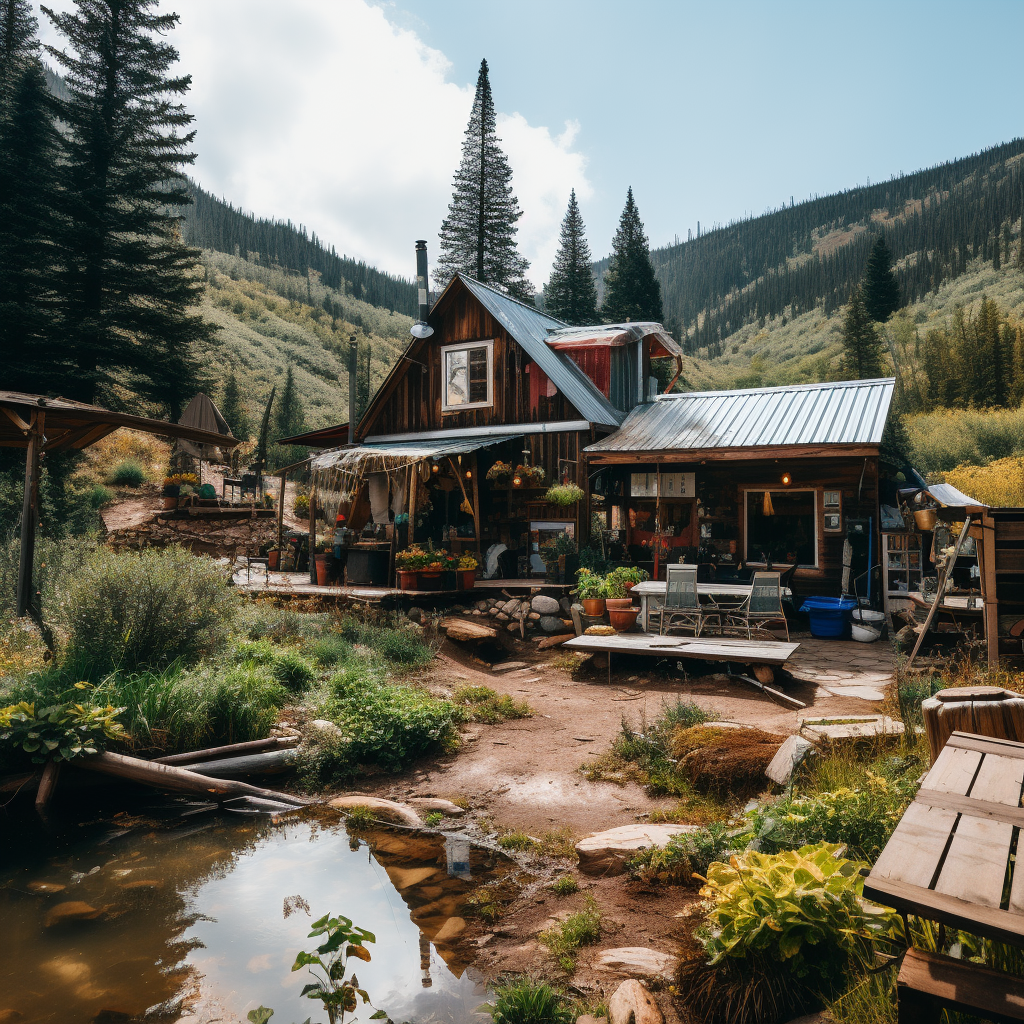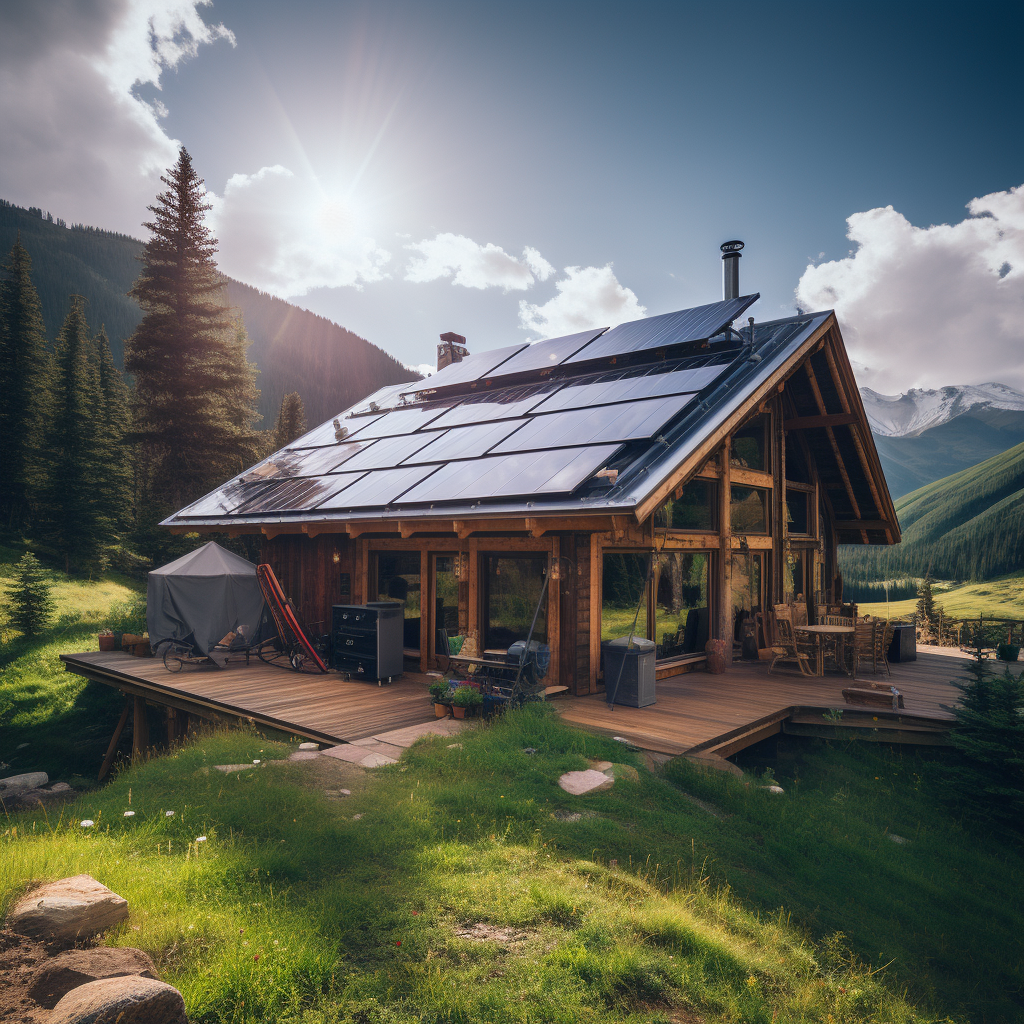Introduction
Embark on a journey into the heart of self-reliance with our detailed exploration of ‘What Is Off-grid Living?’. This article is your gateway to understanding how individuals and communities are embracing a lifestyle detached from conventional utilities. We’ll guide you through the intricacies of living independently from the power grid, highlighting the methods for generating your own energy, securing water sources, and implementing sustainable waste management. Discover the profound benefits of this lifestyle, including its positive environmental impact, potential for significant cost savings, and the freedom of independence. Additionally, we confront the realities and challenges of off-grid living, offering practical advice and resources for those ready to take this transformative step. Prepare to be inspired by the possibilities of a life less ordinary, where sustainability and self-sufficiency are not just ideals, but everyday realities.
What Is Off-grid Living?
So, let’s talk about this thing called “off-grid living.” You might have heard the term floating around, but have you ever really stopped to think about what it actually means? Well, in a nutshell, off-grid living refers to a lifestyle where individuals or communities choose to disconnect themselves from the traditional power grid and become self-sufficient. It’s all about living independently, relying on renewable energy sources, and embracing a simpler, more sustainable way of life. Ready to learn more? Let’s go! Off-grid living refers to a lifestyle in which individuals or communities are entirely self-sufficient and independent from public utilities such as electricity, water, and gas. It is a way of life that promotes sustainability, self-reliance, and a reduced environmental impact. In off-grid living, individuals generate their own power, collect and purify their own water, and manage their waste in a manner that is both environmentally friendly and self-sustaining. This alternative way of living has gained popularity in recent years, as people seek to disconnect from the grid and embrace a more sustainable and self-sufficient lifestyle.
The definition of off-grid living can vary depending on the individual or community. For some, it may mean living in a remote location with limited access to public utilities, while for others, it may involve completely severing ties with the grid and relying solely on renewable energy sources. Regardless of the specific definition, the essence of off-grid living lies in the desire to live independently and sustainably.
There are several advantages to embracing an off-grid lifestyle:
1. Sustainability and Environmental Impact
One of the key advantages of off-grid living is its positive impact on the environment. By generating their own power through solar panels or wind turbines, off-grid individuals reduce their reliance on fossil fuels and decrease their carbon footprint. Additionally, off-grid living promotes sustainable practices such as rainwater harvesting, composting, and organic gardening, which further contribute to a healthier and more sustainable environment.

2. Independence and Self-Sufficiency
Off-grid living fosters a sense of independence and self-sufficiency. By relying on renewable energy sources and managing their own resources, individuals can free themselves from the limitations and uncertainties of the grid. They have control over their energy consumption, water availability, and waste management, allowing them to lead a more self-determined and empowered lifestyle.
3. Cost Savings
Another advantage of off-grid living is the potential for significant cost savings. While the initial investment in renewable energy systems and off-grid infrastructure may be higher, it can lead to long-term financial benefits. By generating their own power, individuals can reduce or eliminate their monthly electricity bills. Moreover, by adopting sustainable practices such as growing their own food or reusing materials, off-gridders can save money on groceries, household supplies, and other expenses.
4. Disconnecting from the Grid
Off-grid living offers a unique opportunity to disconnect from the grid and escape the pressures and demands of modern life. By living off-grid, individuals can create their own pace and rhythm, away from the constant connectivity and reliance on technology. This freedom allows for a more intentional and mindful way of living, fostering a deeper connection with nature and a simpler, less materialistic lifestyle.

5. Increased Resilience and Security
Living off-grid can also provide increased resilience and security in the face of external factors such as natural disasters or power outages. By not relying on public utilities, off-grid individuals are better prepared to handle unexpected events and emergencies. They have built-in backup systems in place, such as batteries or generators, to ensure a continuous supply of power and resources. This resilience can provide peace of mind and a sense of security in uncertain times.
While off-grid living offers numerous advantages, it also comes with its fair share of challenges and disadvantages:
Being off-grid means taking on the responsibility of managing and maintaining all aspects of your energy, water, and waste systems. This requires a significant amount of knowledge, skills, and time. Individuals need to learn about solar or wind power systems, water filtration and purification methods, as well as waste management practices. The initial investment and ongoing maintenance costs can also be significant, making off-grid living inaccessible to some individuals.
Another disadvantage of off-grid living is the isolation it can sometimes entail. Living in remote locations or being disconnected from traditional infrastructure can lead to limited social interactions and a lack of access to services and amenities. While this isolation can be appealing to some, it may not be suitable for everyone, especially those who value the convenience and accessibility provided by urban environments.
Additionally, off-grid living requires a certain level of adaptability and resilience. It may involve adjusting to a simpler lifestyle, being mindful of resource consumption, and finding alternative solutions to everyday challenges. This transition can be demanding and may require individuals to be proactive, creative, and flexible in their approach to daily life.
Despite these challenges, off-grid living has become increasingly popular, with a growing community of individuals and families embracing this alternative lifestyle. If you are considering transitioning to off-grid living, there are numerous resources available to help you along the way. These resources can provide guidance on renewable energy systems, sustainable practices, and tips for living off-grid. Some useful resources include books, online forums, workshops, and off-grid communities or networks.
Conclusion
In conclusion, off-grid living offers a unique and sustainable way of life that promotes independence, self-sufficiency, and environmental consciousness. While it presents challenges and demands a certain level of commitment and resourcefulness, the advantages of off-grid living, such as sustainability, cost savings, and increased resilience, make it an appealing choice for those seeking a more intentional and environmentally friendly lifestyle. So, if you are ready to disconnect from the grid, embrace self-reliance, and reduce your environmental impact, off-grid living might just be the perfect choice for you.




